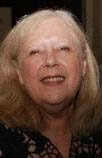Over the past two years, I’ve spent a lot of time in bookstores. I signed in a number of cities with A Poetry Break (2004) and Killing Earl (2005). I’ve spent enough time in both chain and independent stores to realize that the bookstore we once knew and loved no longer exists.
The busiest bookstores where I’ve signed function as community centers. These stores have extended operating hours and a café that usually stays open until 11 p.m. They are always located in areas where there is a lot of pedestrian traffic. They also sell a lot more than books—everything from gift items like bookends to coffee beans. Most of them stock the same titles up front, and most of those titles have enough orders in to be classified as best-sellers. Most of those titles, in hardcover, anyway, will be heavily discounted within weeks of being displayed.
What’s missing from almost every store where I’ve signed is the long-term employee who loves books. I don’t mean to disparage the employees who work in bookstores now. But the day of the truly diversified book lover is, I fear, long behind us.
For one thing, all bookstores depend on major publishers to spur sales. Harry Potter makes the register sing. Mysteries drive the market. You will rarely see a truly famous author signing books in person, although ex-presidents, rock stars, and politicians will do so, and tickets are usually required for the purchaser to meet these media personalities.
What you will also see, in droves, is the mid-list author, or perhaps a local author. Tickets will not be required, and this type of author will spend no small amount of time single-handedly recruiting warm bodies—any warm bodies—to come in to purchase a book. Once this author leaves the store, his or her book will likely be banished to a back shelf and forgotten, at least by the bookstore.
That same mid-list or local author will do scores of book events outside the bookstore realm, and will likely sell more copies at book festivals, independent gift and coffee shops, and speaking events than the author ever sold in a bookstore environment.
Bookstores as centers of literacy and literature are scarce. They have become places where study groups do homework in the café, and where you are likely to see an upfront display of the latest yoga DVD rather than the latest poetry collection by a Pulitzer prize winning poet. The book business in America, like almost everything else, manifests as an extension of the entertainment world.
I miss the bookstore of my youth, the store where I meandered through hallowed aisles of books by all sorts of authors, where books were still produced as a quality product rather than rushed into print as a print-on-demand title, something even traditional, large publishers now do. I miss the employee who could actually name five living poets, the employee who could talk with me at length about authors like Carson McCullers or James Joyce. I miss the employee who could think for herself, rather than follow the mandates set out by management to push the latest alpha-titled-series mystery.
What’s really missing from the American bookstore and the American literary scene is the independent reader, one who can think for herself and who will browse aisles looking for something that the New York Times hasn’t stamped with approval.
I miss the reader who wouldn’t have been duped by James Frey despite his television infomercials portrayed as talk shows. The first thing I asked, when a friend mentioned Frey's “great book” was how come he’s walking around free if he’s wanted in three states? How many felons can hide after center staging themselves on Oprah?
The reader that bookstores knew and loved is missing, compliments of the international marketing conglomerate that determines a handful of publishers comprise the world’s reading list. The conglomerate, though it's made up of different corporations, functions single-mindedly.
Tuesday, January 17, 2006
Subscribe to:
Post Comments (Atom)

No comments:
Post a Comment